
There is a somber country-western song for nearly every situation life offers up; that is, barring a worldwide pandemic. This current state of dystopia is reserved for sci-fi novels and noise-rock lyrics.
Since the COVID-19 story is continuing through 2021 in many parts of the world we wanted to check in with folks in the MTB service and tourism industry to see how the pandemic has affected their work and businesses, and what their futures look like from here. Last spring nearly every race promoter, coach, gym owner, ride guide, accommodation provider, and shuttle driver had to rethink their season, and in some cases their occupation. Bike buying shot through the roof while event promoters and tour operators tried to work out how they could keep a roof.
To start with a success story, Western Spirit and Outerbike founder Ashley Korenblat went from puzzling uncertainty to a packed calendar rather quickly. A sizable chunk of the Western Spirit trail guides work in the ski industry, slowly filtering into Moab in March and April to get their trail assignments for the dry season. In 2020 the ski resorts all closed in March, so all 30 of the guides arrived at once, ready to be sent out to different states for work. Korenblat says that “ten minutes later we had to cancel all of our trips.”
She asked the guides not to apply for unemployment, as she had started Biden’s Paycheck Protection Plan funding application to cover their wages while they wait out the pandemic. They put the guides up in different apartments around town and within their offices and set to work on other equipment and itinerary tasks that rarely receive attention. Then all of the guests had to be phoned with the bad news.
“You can’t come on the trip, and we’re not going to give your money back.” With the understanding that the guides needed to be paid, and that the company wanted to be ready once things opened back up, all of the Western Spirit clients were happy to reschedule. Korenblat says that they have a lot of returning riders who know that the company will do right by them, and they’ll get a great trip out of the deal eventually. Folks were also informed that if they couldn’t come on a trip in 2021 their money would be refunded at that point.
The team at Western Spirit dove into a COVID action plan that eliminated communal touch points, and had guests drive their own cars whenever possible. Everyone had to wear a mask at all times, along with other protocols that were part of the waiver guests agreed to. Two of their guides came down with the virus, and Korenblat immediately called a friend at the local hospital to find out what they needed to do. The folks who interacted with those guides were traced and tested, and no one else was infected. The health department was so impressed with Western Spirit’s social distancing practices that they wanted to hand off an award to Korenblat. While such an award doesn’t exist, the ability to pay her staff through a season that looked bleak was a solid prize. The US trail guiding season normally wanes toward autumn, but in 2020 the Moab-based company had hordes folks jumping on trips at the last minute until the final outing.
Just a hop and a skip into the Pacific Northwest, the team at Ladies Allride were gearing up to run women’s MTB clinics across the US when the virus handed them different plans. Company owner Lindsey Richter remembers a well of fear, both financially and personally.
“When the pandemic first hit and we were faced with the reality that we might have to cancel all of our camps for the summer, it was scary. When we were forced to shut down our camps across the country, we had to give most of that money back. We offered people a credit for 2021 or a private lesson, but it was still a pretty big hit on our financial situation. Thanks to sponsors in the bike industry and the Paycheck Protection Program money, we were able to keep our heads above water, but the fear of it going into a second year was what really had us stressed.

“I think the most devastating part of the whole thing for me personally was my mental health. I’ve been traversing the country since 2002 racing, riding and coaching mountain biking so it was hard for me to stay in one place without the stimulation of traveling and seeing friends and participants we get to see every year. In the end I think it was really good for me to take a step back, figure out who I am without this lifestyle and get more comfortable in my own skin when my livelihood felt stripped away for a bit. It helped me become more in tune with what’s important in life but it also allowed me to see how much value I put on interacting with the mountain biking community and inspiring women with bikes. It lit a fire under me to keep working hard to help as many people as possible find joy and strength within because of mountain biking and I look forward to what’s to come.”
It helped me become more in tune with what’s important in life but it also allowed me to see how much value I put on interacting with the mountain biking community and inspiring women with bikes.
Lindsey Richter, Ladies Allride
We also chatted with former professional racer and Ladies Allride coach Tina Brubaker whose COVID country-ballad included picking up a second job and riding with visiting doctors who had flocked to Bend, Oregon, and needed a trail partner to show them around. Brubaker helped her local shop, Hutch’s Bicycles, weather the buying wave and was able to conduct one-on-one skills coaching and “ride buddy” guiding starting later in the spring. Brubaker enjoyed the friendly shop vibe so much that she plans to stay on for at least one day per week once things open back up.
Brubaker’s MTB shuttle and tour neighbors over at Cog Wild weren’t so fortunate. Tour guide Kirin Striker shared a story of layoffs and long periods of uncertainty.
“In April 2020, instead of gearing up for what we anticipated would be our biggest season ever, we laid off our entire staff of 30 employees in Bend and Oakridge. Tourism was deemed ‘non-essential’ and we had to tell the employees that we weren’t sure if we would be able to open and suggested they take whatever work they could. We lost a couple good employees to alternate jobs. To shore up the business, we put temporary holds on all vehicle loans and applied for state grants and federal loans. There were plenty of tears and uncertainty in April and May. We had no clue how to operate safely with this invisible threat. Slowly, we found the Oregon Health Authority’s guidance for outdoor recreation and public transit. One day, to figure out capacity for the shuttles, the main office staff sat in a van with our masks on and anxiously stared at each other: How’s this? Do you feel safe? We created a set of procedures for our staff and clients, purchased gallons of disinfectant and hand sanitizer, gloves and masks and opened for business a few weeks later than usual on May 29.
“The entire season was tough because we needed to operate for the business to survive, but the City of Bend actively discouraged tourist travel to the region. In Oakridge, folks were weary of visitors because of the risk of infection in the small, rural town. Over time, we fell into a rhythm. The vast majority of clients were supportive of our efforts and some said they went with us because they clearly saw that we were trying to keep our staff and clients safe.
“We nearly made it through the season without having to shut down, but on Halloween one of our key Bend employees was infected with COVID 19. Our office is small and the weather in late fall is cold. Because many of the employees had more than 15 minutes of inside exposure to the person, eight of us had to quarantine for 2 weeks, which essentially ended our season a couple weeks early. Luckily, we qualified for paid leave through the State, so none of our ‘close contact’ employees missed out on income.”
“We’re not clear of danger yet, but we’re cautiously optimistic about the 2021 season because many of us are vaccinated and clearly our procedures from last year worked to keep visitors and employees safe. If we made it through 2020, we’ll make it through 2021. All signs indicate that this will be our biggest year ever.”

Moving away from the USA slightly to the Trans BC Enduro and then ’round the globe for the Trans NZ Enduro, promoter Megan Rose was able to pull together a New Zealander-only event in 2020, and 2021 looks to follow a similar narrative. Rose said that she plans to try a three-day Canadians-only Trans BC event this year, rolling with the punches until she is able to get back to regular racing. She will also launch the inaugural Trans Tasmania in 2021, with an all-Australian cast for this first iteration.
Country songs have a decidedly different tune in Slovenia, where Trans Julius race promoter Vesna Stanic had to cancel the 2020 race, and 2021 remains a question mark. Pandemic lockdowns across Europe have been and continue to be quite strict, with mandatory mask wearing, curfews, mandated distancing, and closed borders, all backed up by hefty fines. Vesna recalls those first moments of lockdown when we were all afraid to breathe, and we all thought that we’d be back to the fun in a few weeks.
“The first week of the first lockdown we were all motivated – ‘just 14 days and then we can work on.’ Then the new reality hit us: another 14 days. The event industry started to forecast that events ‘like we used to know’ will be possible in 2023 or 2025. Many people spent more time on a bike, maintaining trails, and cleaning bikes.
“Although we all want to be positive and motivated to catch a tiny window of opportunity, the emotions after receiving messages from riders who miss the Trans Julius vibe hit me a lot. On one hand, I am calculating the situations and regulations for traveling, the new costs, and trying to forecast a window of opportunity. On the other hand, it is hard to handle all the daily stress that our riders confront. It is even hard to post a story on Instagram because you receive many messages of missing the local food, local riders, trails – that Trans Julius vibe that was unique in all aspects – the feeling of your tribe gathered together from all over the world. The virtual world can’t bring that vibe or feeling.
“In 2020 I definitely spent more time coordinating with institutions like the forest service, nature conservation, and farming [to create] a better understanding of mountain biking, starting a new training course at Europarc for sustainable development of protected areas; again with the aim for mountain biking to be more included. Also a new initiative arose in our region for mountain biking development. That all sounds good that something is moving, but I miss the adrenaline of the event, with no sleeping.”
Vesna knows that the road back to full-time community fun is long, and it may never look the same. “Especially with recreational events like ours – we will be the last on the list with permission. There are huge new costs coming for us – tests, translation of the test results for foreigners, daily testing, etc. Most of us work on recreational events, not as our job but as a free time activity. Sponsors are moving out, the tourism organizations are on their knees with budgets, local restaurants are mostly closed down for the last six months. I will be honest: I don’t see a simple solution and I don’t know when and how we can organize our kind of events with international riders again.”
“If in the first lockdown we were motivated to fight the pandemic, after the second lockdown we started to be passive. And now we are starting the third lockdown. We are so used to this new way of life, that we don’t recognize some rules that are not in use anymore. The world has changed, but I still think we haven’t got it. We haven’t embraced the new reality. We don’t want to adapt or change. We are passively waiting for all good times to come back. But I don’t believe that will happen.”
Some of Vesna’s favorite neighbors who run the EWS events in Slovenia along with their own MTB hotel and a special little trail in a cave were also deeply affected by the pandemic. We spoke with Slovenian race promoter and ride-guide Anej Štrucl who expressed gratitude for the country’s 80% paycheck replacement program during the hard times. With no EWS race and no visitors to their family hotel and trail center, the Štrucl family set to work remodeling the hotel to better suit the waves of visitors they hope to greet in the coming years. The family also builds and maintains all of the tracks that the rooty enduro event takes place on, and they have been busy cutting new fun into the soil. The Slovenian EWS date will be a qualifier for 2021, hopefully returning to the elite category once travel becomes more plausible.
Finally, we slide a bar across the lap-steel guitar, all the way to Finale Ligure, Italy, where business has been largely locals-only since the pandemic began. Italians have endured some of the most strict regulations, starting with a 60-day stay at home order where they were required to carry a signed piece of paper when leaving the house that stated their reasons and timing. During this period outdoor activity was prohibited, including solo bike rides, and the fines for breaking these rules were hefty.
Today everyone is allowed outside for exercise and grocery-getting, but many of the strict rules remain in place. In the majority of the country, citizens are not allowed to leave the municipality they belong to, and the government has been ordering all businesses closed around holidays to prevent large gatherings. All of this regulation has taken a massive toll on the main industry that feeds Italy: tourism. Mountain bike shuttle operators have had to find other work, as there is no one around to guide on the trails. One local guide, Daniele Villa, said that the professional enduro athletes who stay in Finale to train through the winter are some of the few people you see running shuttles now. He mentioned that the majority of guides and drivers have taken other jobs or left the area entirely, while others are preparing for the massive wave of business they expect to come once the borders reopen.
Villa also mentioned that there has been a somewhat unprecedented amount of trail work going on in Finale, and a lot of the trails that were destroyed by flooding a few seasons back are now in top shape. Like all of us humans, those beautiful ribbons of fun will have to wait for some unknown point in time when we all move toward an unknown state of normalcy.
If you have a story of adaptation, hardship, or triumph through this global crisis please share it with us in the comments below.

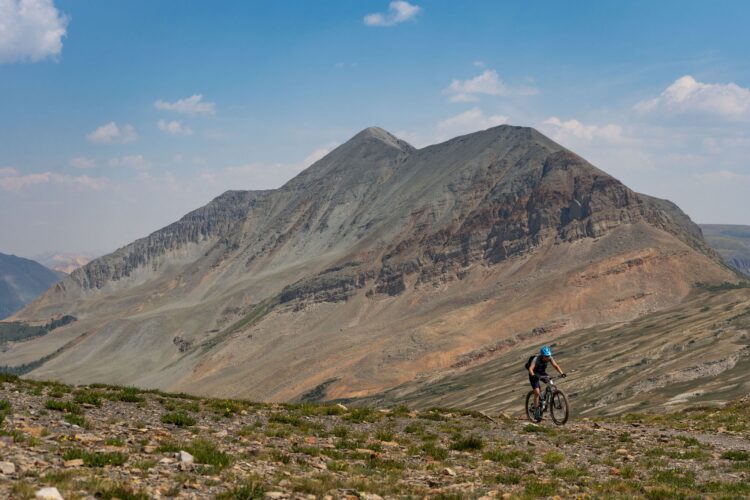


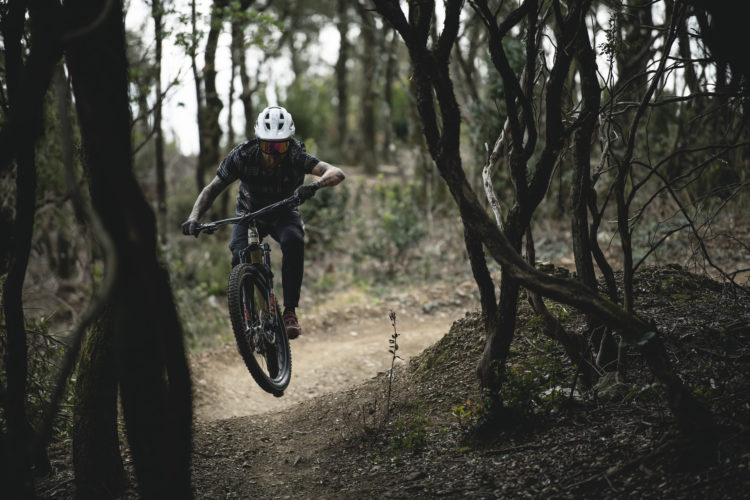
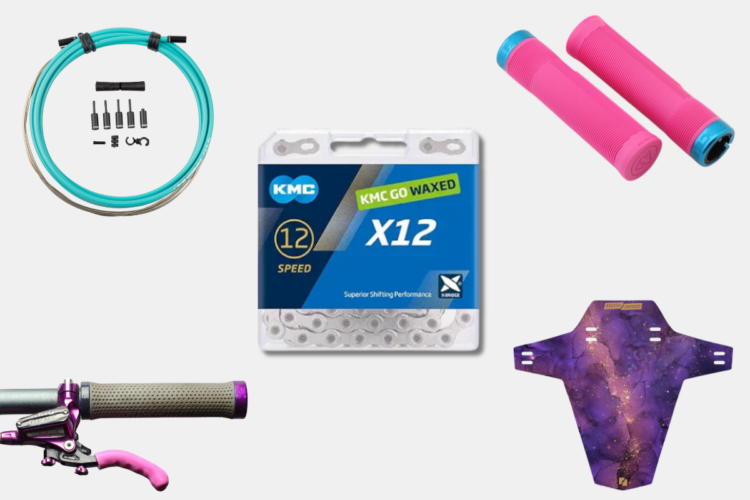
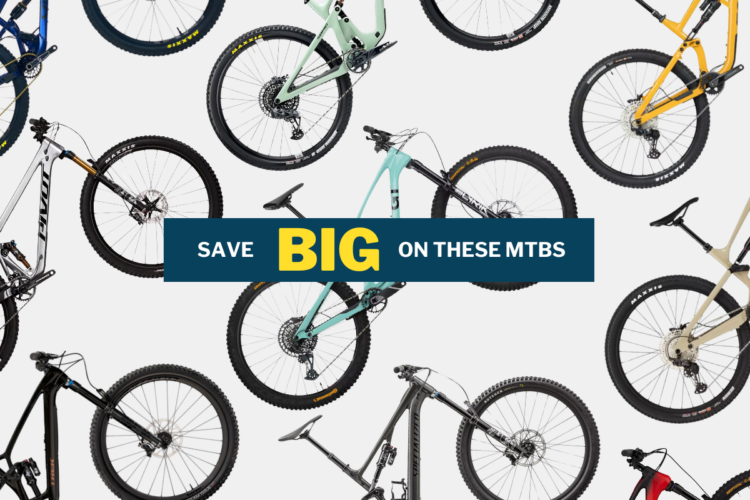
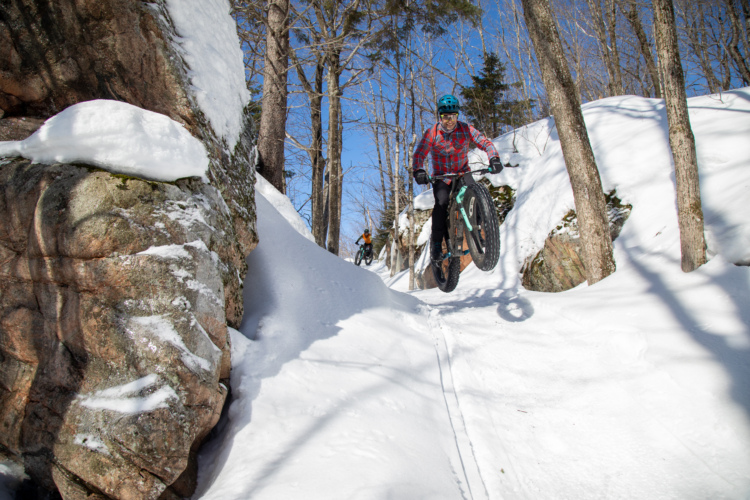
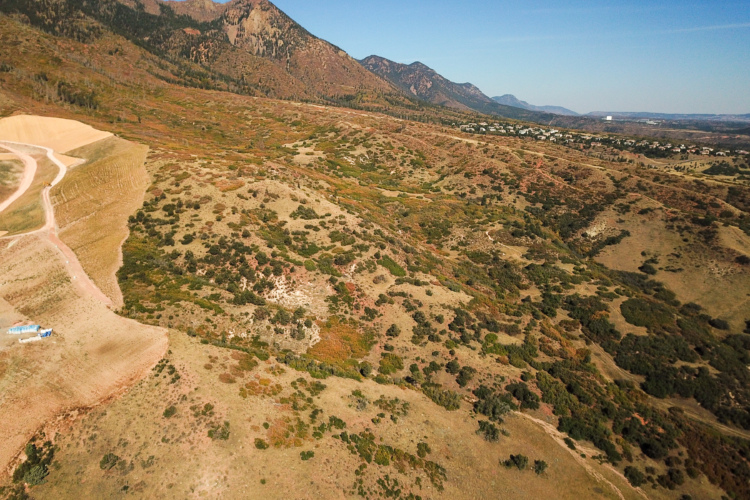

0 Comments